
Honey and smart gardens: how organic farming is being developed in Armenia
The EU Green Agriculture Armenia Initiative (EU GAIA) helps local communities to move towards sustainable farming practices and achieve success.
Vardan Kocharyan’s sweet plans
Vardan Kocharyan, a beekeeper from Gegashen village in the Kotayk region of Armenia keeps an apiary in a high-mountain zone. His honey, under the brand name ‘Alpia’, has already gained popularity in the country, and Vardan is considering the possibility of exporting.
He is developing his business with the help of EU GAIA.
“We develop organic beekeeping in Armenia and in the region and get 2-3 tons of honey every year. The products are certified organic, which helps a lot with sales. We sell mainly to the domestic market,” says the beekeeper.
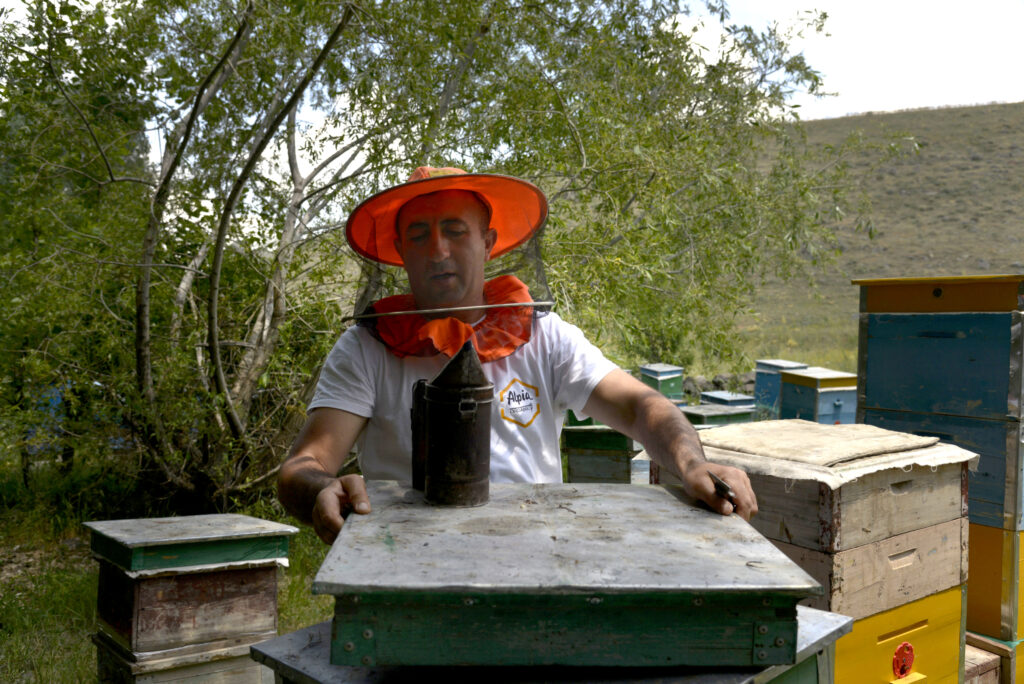 Vardan Kocharyan, a beekeeper
Vardan Kocharyan, a beekeeper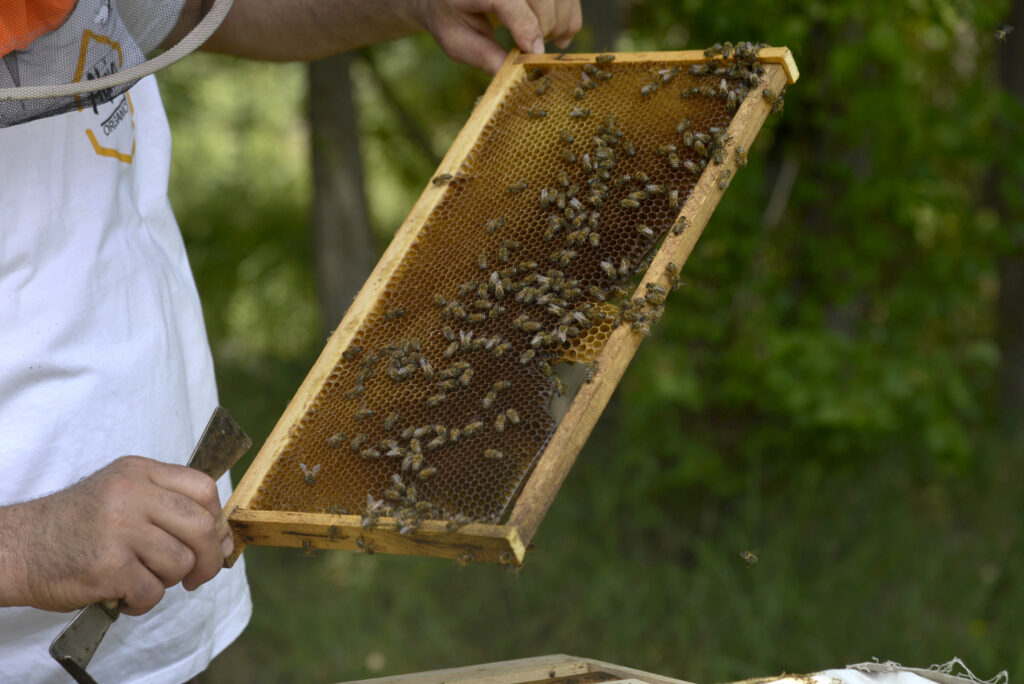 Vardan develops organic beekeeping and gets 2-3 tons of honey every year
Vardan develops organic beekeeping and gets 2-3 tons of honey every year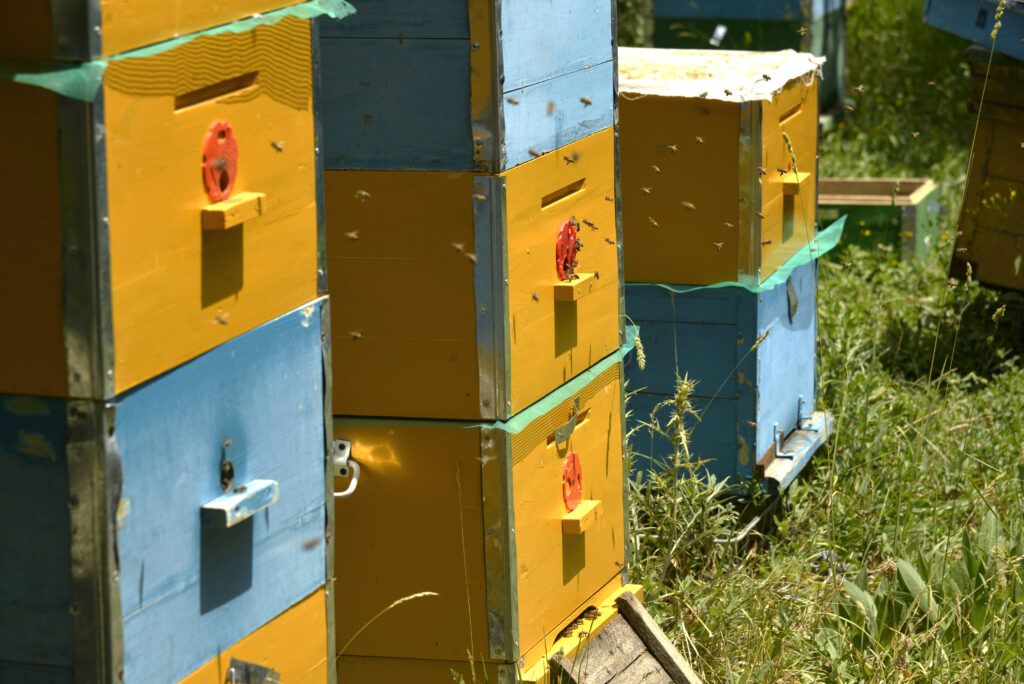 Vardan keeps an apiary in a high-mountain zone
Vardan keeps an apiary in a high-mountain zone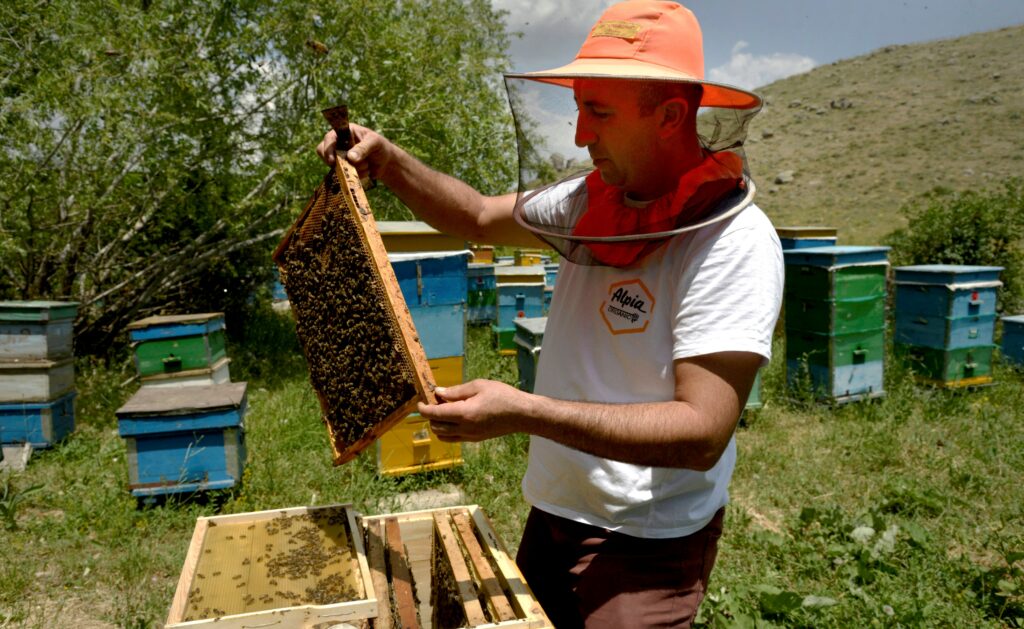 Vardan Kocharyan
Vardan Kocharyan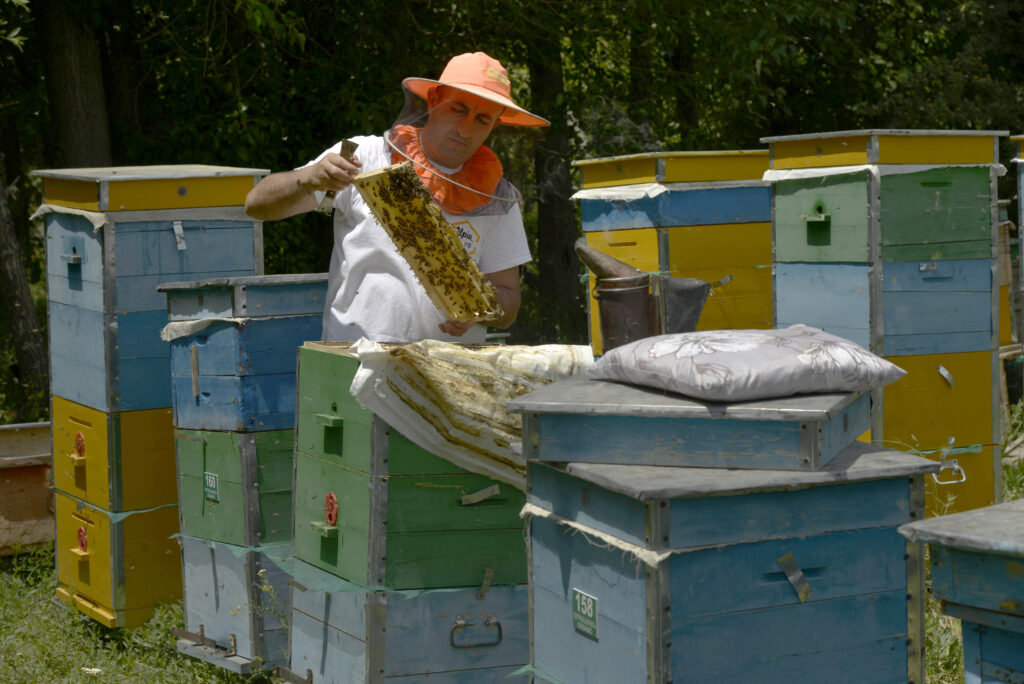 Vardan showcases his apiary
Vardan showcases his apiary
Vardan created his business with his own effort and funds, but the sales volumes were low, and the project funding allowed him to develop the enterprise and to purchase new equipment. The firm’s products are now beautifully packaged and can compete on the market.
Thanks to the project, Vardan also took part in exhibitions abroad. It was a good chance to present his products, find new partners, exchange knowledge and experience, and discuss export opportunities.
“The success is obvious, especially in the Arab countries – they started to appreciate the Armenian honey more, and think about its import,” says Vardan.
He also intends to export honey to the USA and EU countries – he will focus on this as soon as the pandemic allows.
How to learn organic farming?
Six years ago, the head of the non-governmental organisation Green Path, Nune Sarukhanyan, founded the Centre for Green Agriculture in the village of Jrvezh, in the Kotayk region of Armenia. The centre runs free courses for farmers and workshops in its gardens.
“Sustainable agriculture improves production socially, economically and environmentally. Before the introduction of organic farming methods, farmers were only concerned with obtaining economic benefits, but could not achieve this, since they did not reckon with nature. The golden rule of sustainable agriculture is to feed the land for it to feed you. A healthy land means a healthy plant, a healthy person, a healthy society. We do not only teach this to farmers, but also preach by example,” she says.
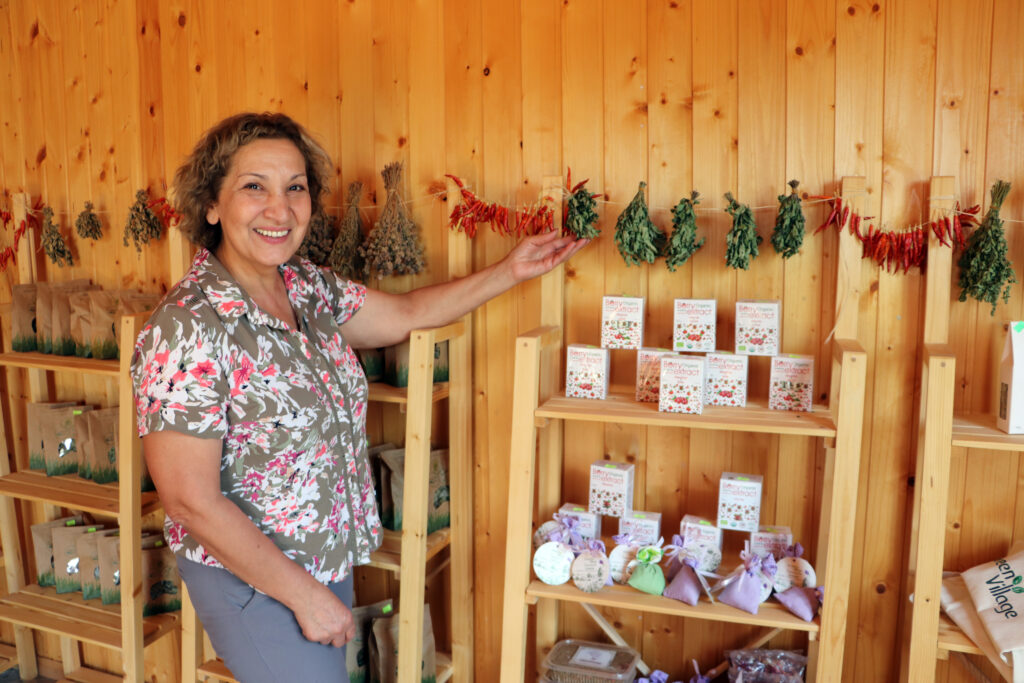 Nune Sarukhanyan, the head of the non-governmental organisation Green Path
Nune Sarukhanyan, the head of the non-governmental organisation Green Path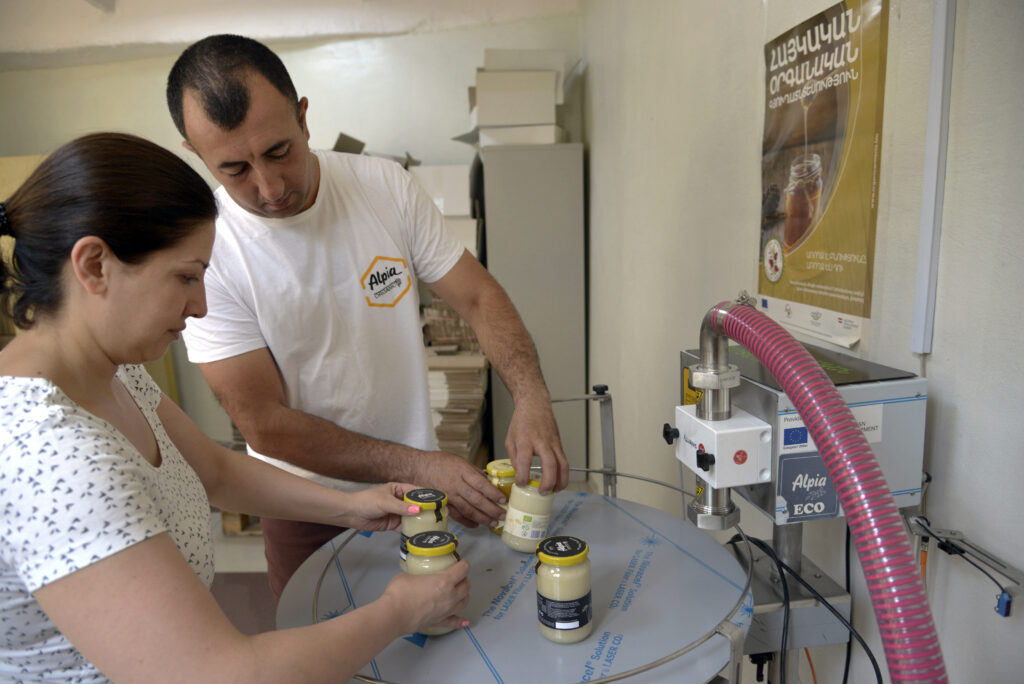 The products are nicely packaged
The products are nicely packaged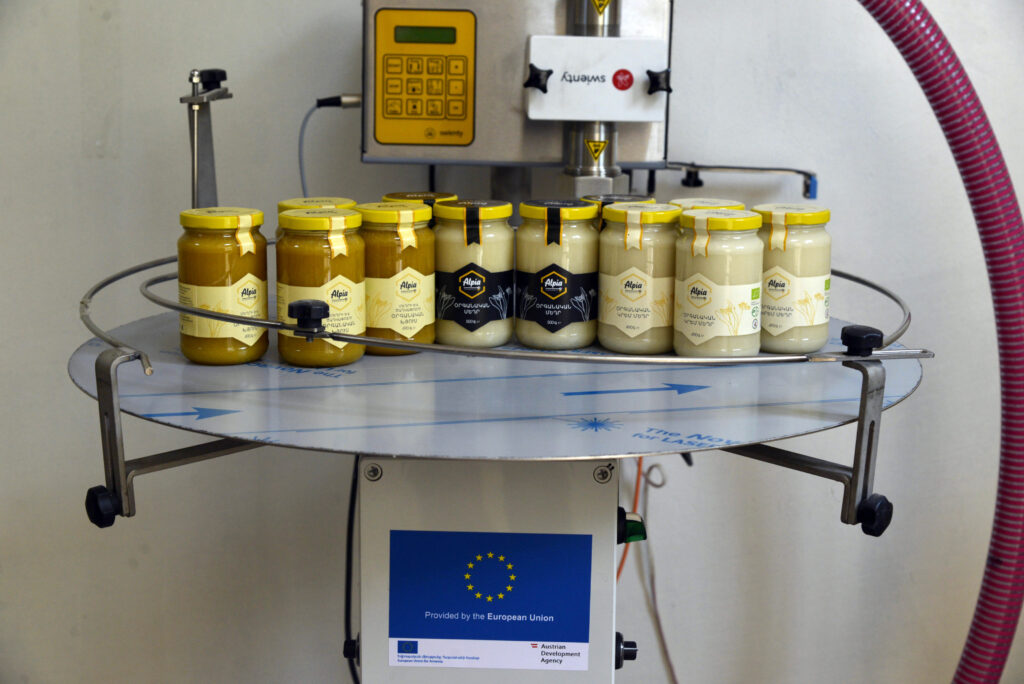 The products are certified organic, which helps a lot with sales
The products are certified organic, which helps a lot with sales
Under EU GAIA, Green Path has received support to expand the programme.
“We believe it is particularly important to demonstrate new technologies during training so that farmers can be convinced of their effectiveness. For example, we created a hail screen that also helps in pest control and protects plants from direct sunlight in hot weather,” says Nune Sarukhanyan. “Part of the support was directed towards the introduction of a drip irrigation system. In areas where there is no water, this is of vital importance.”
Farmers are taught the principles of sustainable agriculture, plant compatibility, cultivation, and drought management. Students, including international ones, can apply for internships in the centre. Some of the volunteers and trainers also come from abroad.
“2020 turned out to be a crisis year due to the pandemic, but the number of people wishing to study at our centre has increased. It seems the pandemic prompted people to think about the development of agriculture. Even city dwellers come to us to study – they are planning to set up their own gardens,” says Nune Sarukhanyan.
The centre also received EU GAIA support for landscaping in preparation for the annual harvest festival, which aims to spark greater interest in rural life and traditions.
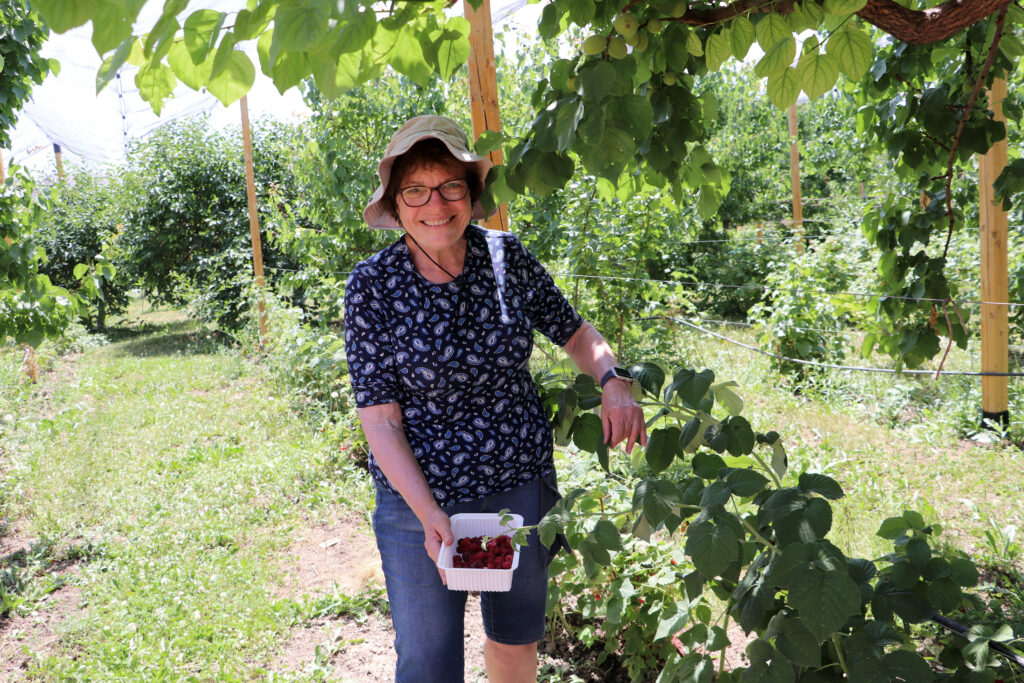 The Centre runs free courses for farmers and workshops in its gardens
The Centre runs free courses for farmers and workshops in its gardens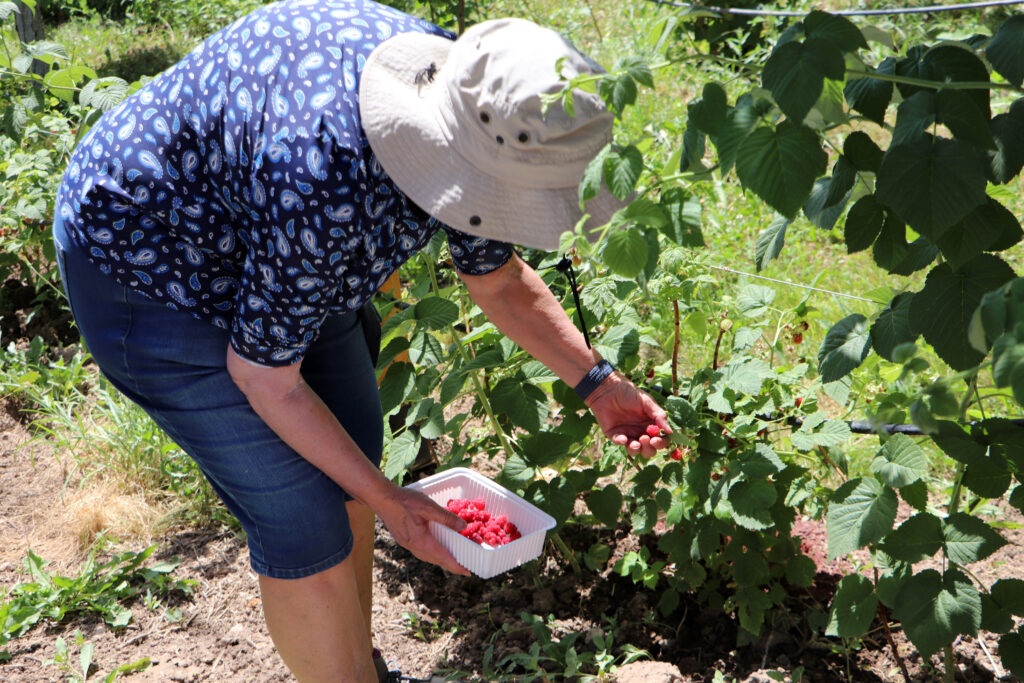 Farmers are taught the principles of sustainable agriculture
Farmers are taught the principles of sustainable agriculture
In addition, within the framework of the project, ‘smart’ and ‘green’ gardens were created in Tavush marz. “The success of the centre in Jrvezh inspired us to open similar gardens in other marzes of Armenia. Financial support allowed for the expansion of the project. Without assistance, we would have had a hard time,” says Nune Sarukhanyan.
What does the EU Green Agriculture Initiative in Armenia offer?
Emma Petrosyan, EU GAIA PR manager, says that an organic agriculture project was launched in Armenia in 2015. Some years later, the EU expanded this successful project to the ‘Green Agriculture Initiative in Armenia’.
The EU GAIA project started in October 2019 and is designed for 42 months. The total budget is €11.7 million: €9.7 million from the EU and €2 million from the Austrian Development Agency, which implements the project. The United Nations Development Programme also participates in it.
“When we talk about green farming, we mean sustainable farming practices. The main goal is to ensure, especially in the northern regions, inclusive agricultural growth and to support the introduction of sustainable farming methods,” says Emma Petrosyan.
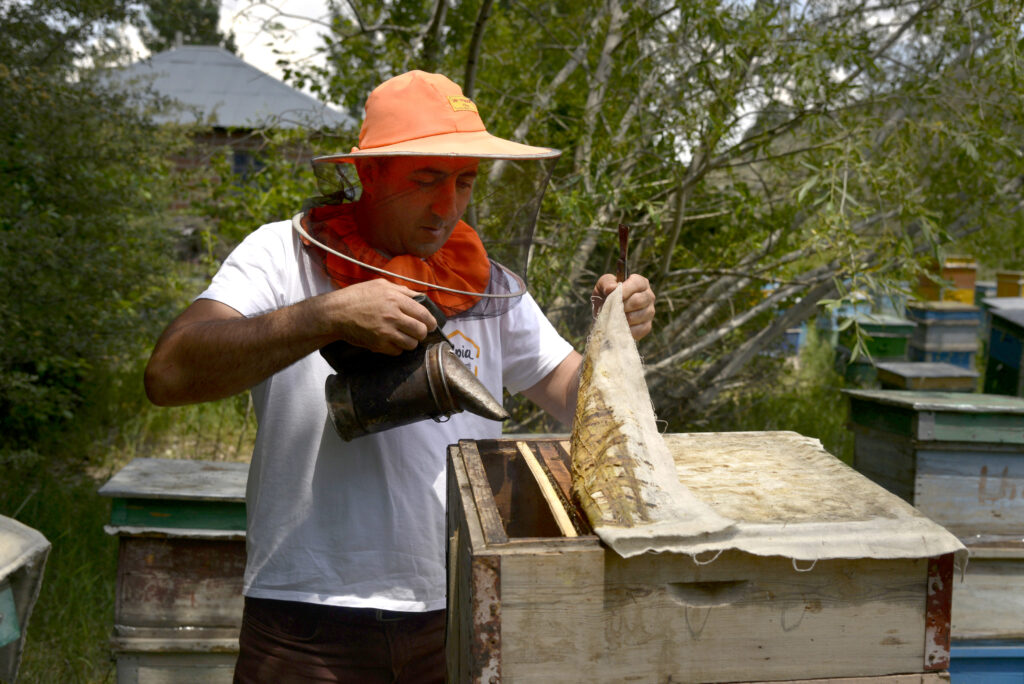 Vardan Kocharyan
Vardan Kocharyan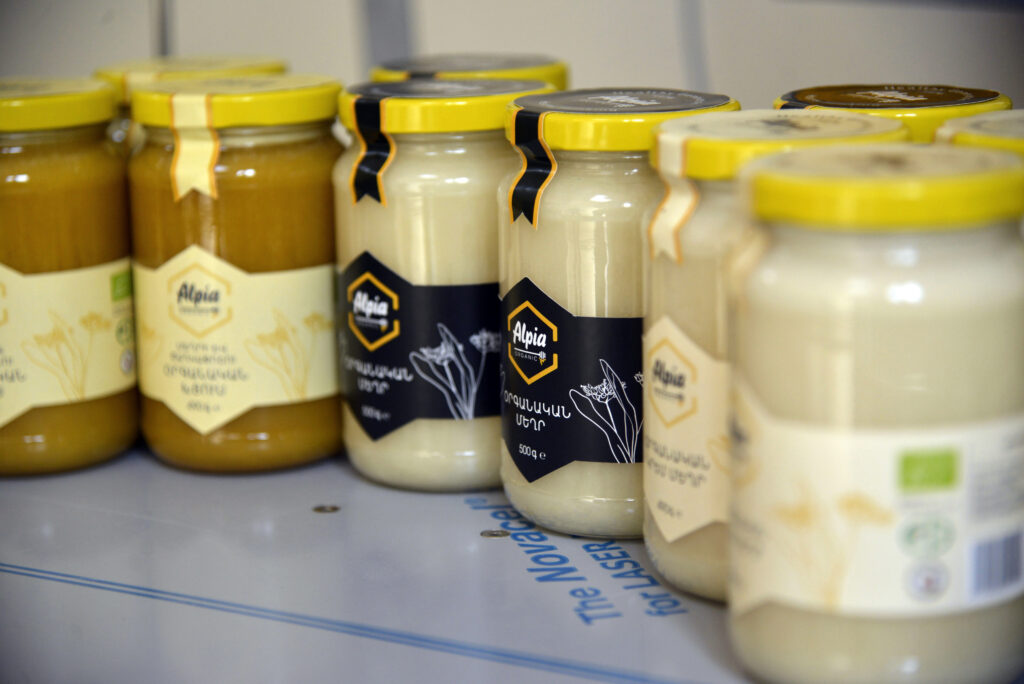 Vardan’s honey under the brand name ‘Alpia’
Vardan’s honey under the brand name ‘Alpia’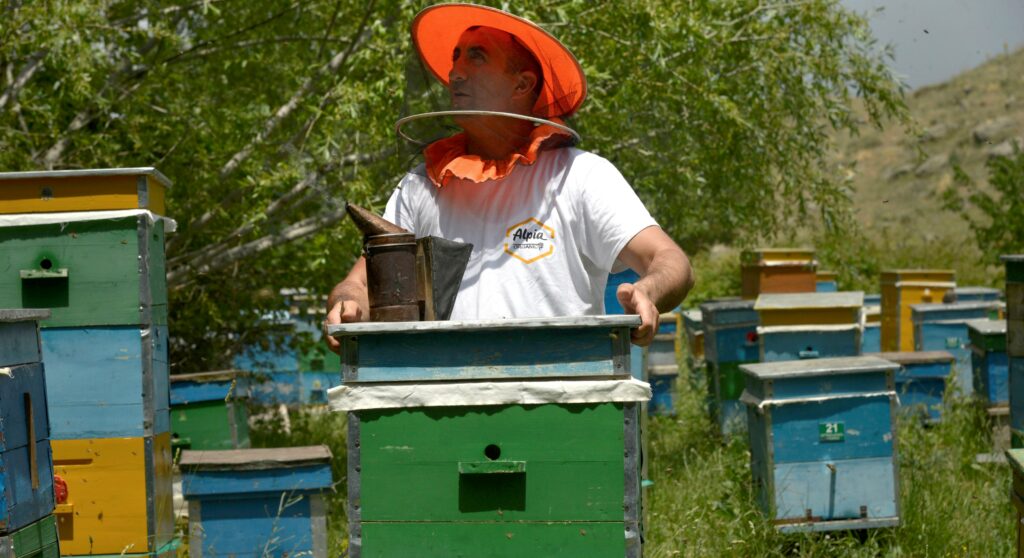 Vardan’s apiary
Vardan’s apiary
Among the project’s components are the development of legislation and regulatory instruments in the field of organic agriculture, the introduction of green technologies and the creation of demonstration fields, and support for ecological production.
“We expect that by the end of the project we will have 120 green farmers who specialise in sheep breeding, production and processing of berries and fruits, vegetables, medicinal plants, and nuts,” says Emma Petrosyan.
According to the project representative, Armenia has enormous potential for the development of organic and sustainable agriculture, but most farmers use old methods. Time to move on to something new!
Author: Roza Hovhannisyan
Article published in Armenian, Russian and English on Lragir.am
MOST READ
SEE ALSO

No, time is not on Russia‘s side
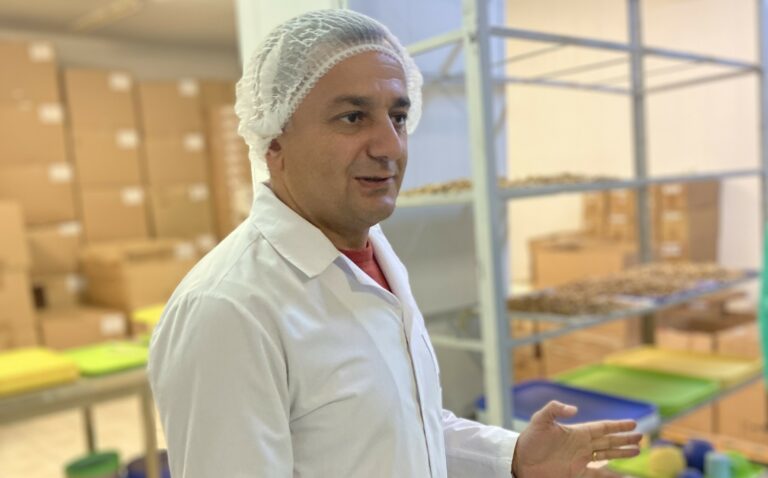
Sweet smell of chocolate
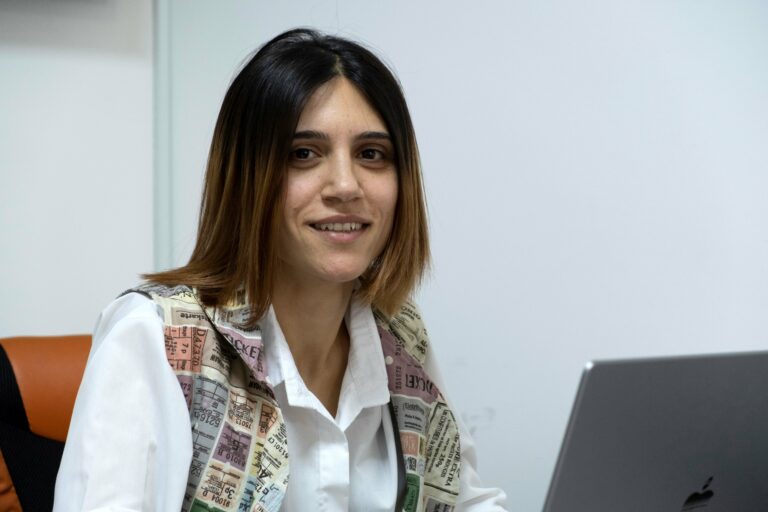
‘Be yourself, and always move forward’: Meri’s advice to young women in business

Be one step ahead of a hacker: check simple cybersecurity tips!
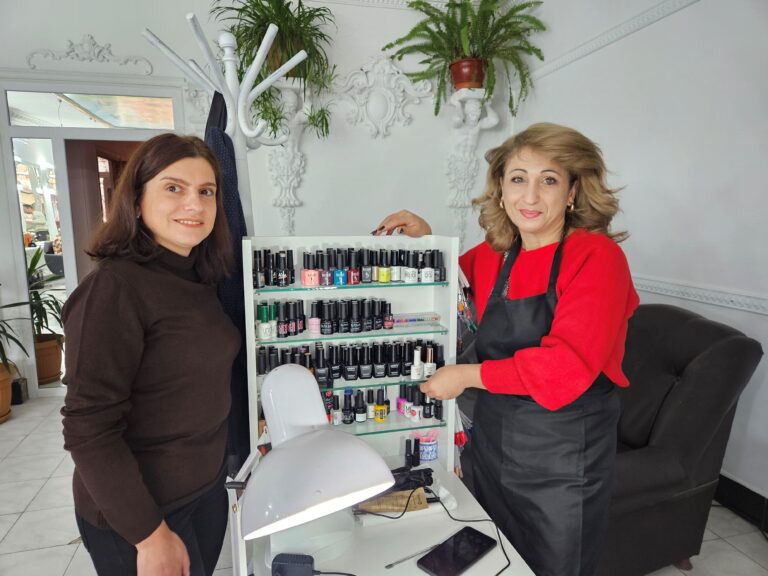
The power of skills: women paving the way to their own business in rural Armenia
More campaign pages:
Interested in the latest news and opportunities?
This website is managed by the EU-funded Regional Communication Programme for the Eastern Neighbourhood ('EU NEIGHBOURS east’), which complements and supports the communication of the Delegations of the European Union in the Eastern partner countries, and works under the guidance of the European Commission’s Directorate-General for Neighbourhood Policy and Enlargement Negotiations, and the European External Action Service. EU NEIGHBOURS east is implemented by a GOPA PACE-led consortium. It is part of the larger Neighbourhood Communication Programme (2020-2024) for the EU's Eastern and Southern Neighbourhood, which also includes 'EU NEIGHBOURS south’ project that runs the EU Neighbours portal.

The information on this site is subject to a Disclaimer and Protection of personal data. © European Union,







